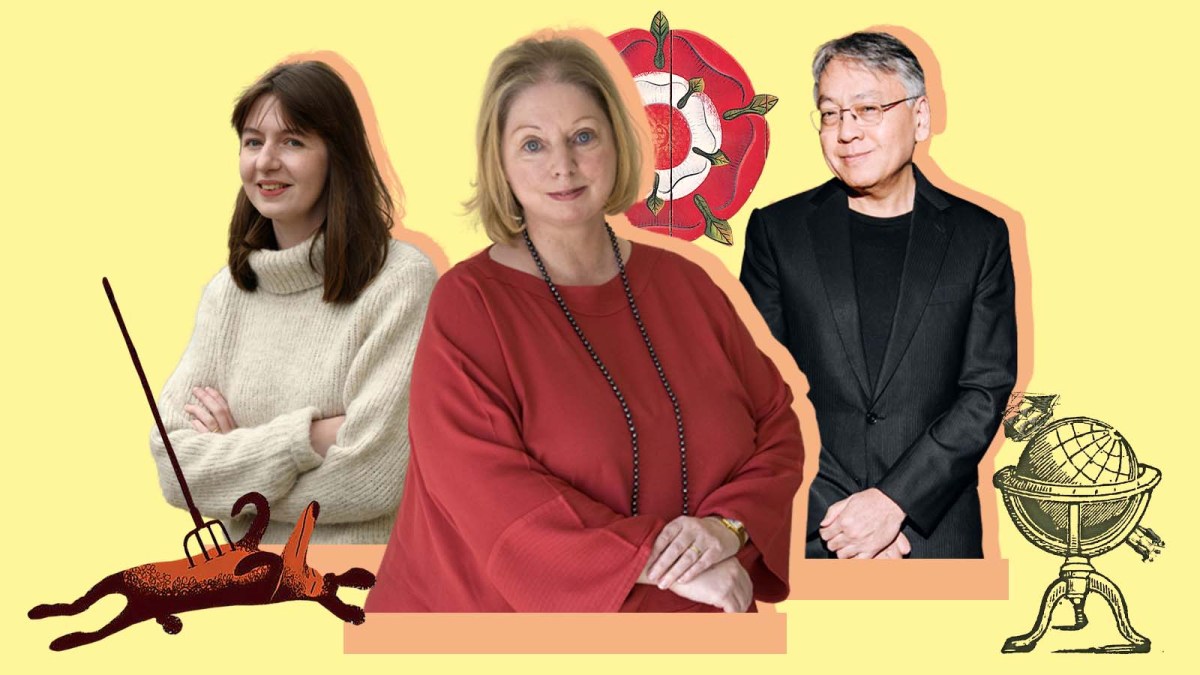As we hit the quarter mark of the 21st century, we on the books desk felt it was a good time to reflect. How has the literary world changed since fireworks went off at midnight on January 1, 2000? What new writers have burst into our national consciousness and which old dogs have continued to learn new tricks? We set ourselves the challenge of choosing the best novels of the past 25 years, hoping they might give us a glimpse of the literary spirit of our age.
We had to have some rules. So, we’ve limited ourselves to writers from Britain and Ireland and we’ve chosen no more than one novel by each writer, mainly so that our list couldn’t be confused for a Hilary Mantel bibliography. The following books are presented from oldest to youngest, but we’ve kept our five favourites for the end.
There are big, bustling epics next to slim, tightly wound tales, and multivoiced narration sits alongside introspective autofiction. There are stories set during the Napoleonic Wars, the Trojan Wars and the Troubles in Northern Ireland, as well as one that spans multiple worlds. What they all share is great imaginative strength and an attentiveness to every sentence, every last word.
Do you agree with our list? Or have we missed a book that deserves to make the cut? What is your favourite novel of the 21st century? Let us know in the comments below.
White Teeth by Zadie Smith (2000)
Hitting shelves in January 2000 — and therefore eligible for our list by the skin of its teeth (forgive the pun) — Zadie Smith’s debut novel captures Britain at the start of the new millennium: fast-paced, noisy, multicultural. Even more impressive is that Smith was only 24 when it was published, having started writing the book at university. She had the good fortune to sit beside Salman Rushdie at a dinner party, who read it, loved it, and hooked her up with an agent. Spanning 25 years and 560 pages, the state-of-the-nation novel tells the story of Archie Jones and Samad Iqbal, whose paths first cross in 1945 during the war and later realign when they become neighbours in northwest London. Smith has had plenty of bangers since, but this is what put her on the literary map.
Buy a copy from The Times Bookshop
The Amber Spyglass by Philip Pullman (2000)
Amir Wilson and Dafne Keen as Will and Lyra in His Dark Materials
BBC
The Amber Spyglass was the first children’s book to be longlisted for the Booker prize — and it deserves to be read by old and young alike. While the essential story — of two young people from different worlds, Will and Lyra, who fall in love — might sound familiar, Pullman was inspired by Miltonic philosophy, astrophysics and Christian theology. In this fast-paced conclusion to the His Dark Materials trilogy, Will and Lyra must venture to the Land of the Dead. They come to understand the depth of their feeling for each other, and why they must sacrifice their relationship for the good of mankind. It’s heartbreaking: “And when we do find each other again, we’ll cling together so tight that nothing and no one’ll ever tear us apart. Every atom of me and every atom of you.”
Buy a copy
English Passengers by Matthew Kneale (2000)
An eccentric vicar, in thrall to ludicrous speculations, believes that the Garden of Eden is located in Tasmania. Being an intrepid Victorian fellow, he sets off to find it on a ship crewed by Manx smugglers and accompanied by a surgeon with rather disturbing scientific racial theories (yes, science proves the British are superior). Of course this madcap adventure to the other side of the world won’t end well. The English passengers get odder and odder … The story is told through the eyes of 20 or so characters, many of them deluded, grotesque or dotty; one of the narrators, though, is a native Tasmanian and we see the lethal undertow of British colonialism. Despite that dark shadow, the novel is also very funny. This winner of the Whitbread prize is historical fiction at its most imaginative.
Buy a copy
Any Human Heart by William Boyd (2002)
It can be a privilege to follow a character from cradle to grave, and in Any Human Heart William Boyd makes Logan Mountstuart feel like a dear friend. These are his “intimate journals”, beginning in 1923 when he is a schoolboy — worried about exams, meeting girls, losing his virginity — and continuing as he goes up to Oxford, mopes around in Paris, marries, has a child and has his life utterly changed by the war. Perhaps the most accomplished sections of the novel, though, come towards the end, as Logan descends into the indignities of impoverished old age, at one particularly memorable point resorting to eating dog food “with the liberal addition of some tomato ketchup”. It also has liberal additions of that thing so many great novels forget to include: humour.
Buy a copy
The Curious Incident of the Dog in the Night-Time by Mark Haddon (2003) 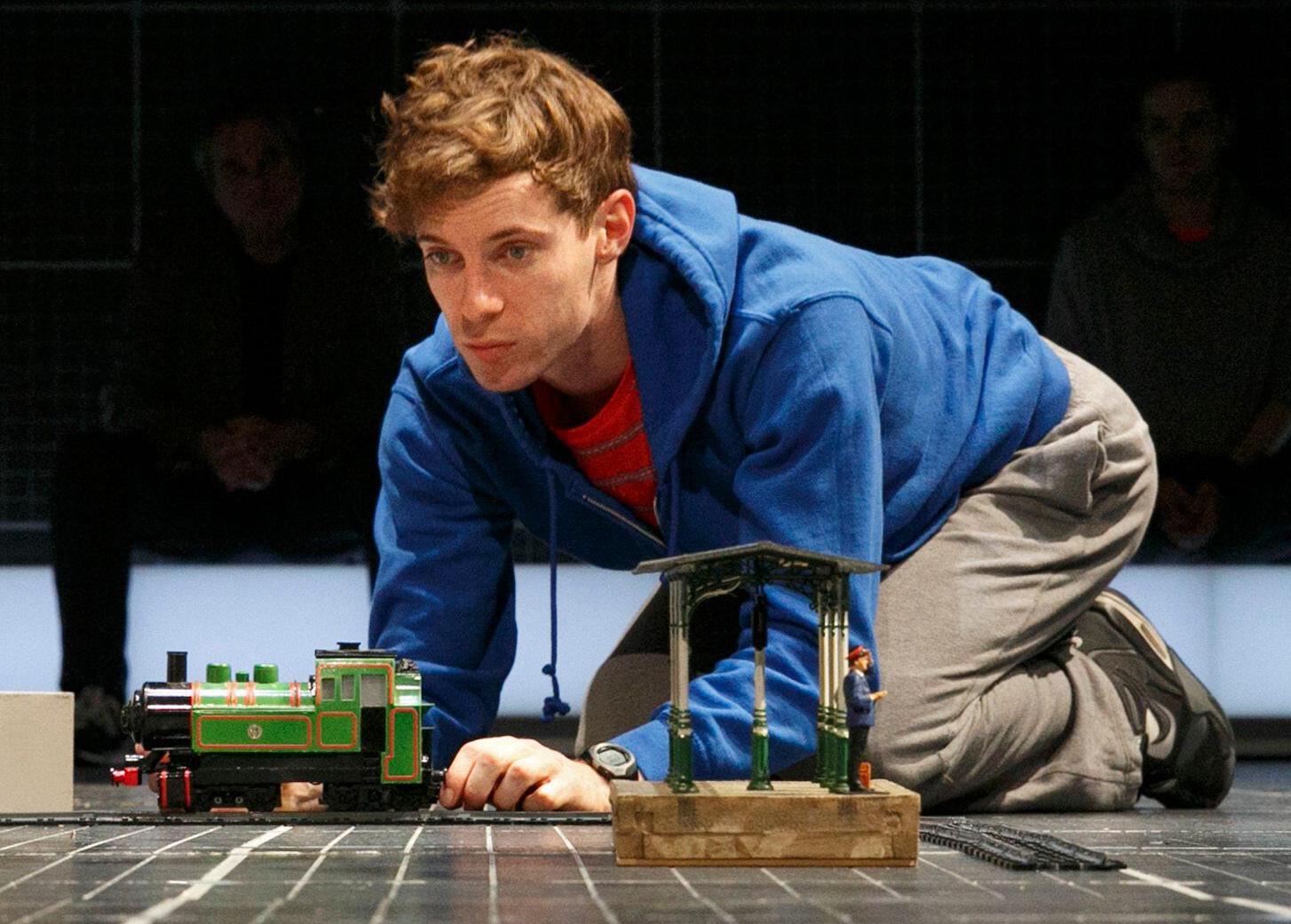
Luke Treadaway in the National Theatre’s production of The Curious Incident of the Dog in the Night-Time
ALAMY
Not many books begin with the brutal murder of a hound with a gardening implement — “It looked as if it was running on its side, the way dogs run when they think they are chasing a cat in a dream. But the dog was not running or asleep. The dog was dead. There was a garden fork sticking out of the dog.” — which is perhaps why Mark Haddon’s clever murder mystery stands out as one of the most fantastically original books of the past couple of decades. It’s narrated by a puzzle-obsessed 15-year-old with Asperger’s syndrome, who doesn’t like strangers or the colour yellow or being touched. Chapters are labelled with prime numbers instead of a normal 1, 2, 3. We were flabbergasted that it didn’t make it past the longlist of that year’s Booker prize.
Buy a copy
• The best books of 2025 so far — our critics’ picks
Notes on a Scandal by Zoë Heller (2003)
Zoë Heller’s ingenious psychological thriller about a student/teacher affair was inspired by WH Auden’s observation that “the desires of the heart are as crooked as corkscrews”. The story centres on two very different teachers working in an Islington secondary school who develop an unlikely friendship. Barbara is a dowdy history teacher who lives alone, Sheba is a posh new pottery teacher who puts her family, career and social position in jeopardy when she starts sleeping with a 15-year-old student, Steven Connolly. What makes the whole sordid affair so layered is that it’s narrated by the bitter and twisted Barbara, who is convinced that Sheba’s interest in the boy stems from her surprise that anyone from a deprived background might be interested in art. This is a technically brilliant piece of character-driven fiction about class, obsession and betrayal.
Buy a copy
1983 by David Peace (2003)
The Red Riding Quartet — 1974, 1977, 1980 and 1983 — is an extraordinary work of imagination. It is David Peace’s nightmare vision of his home county of Yorkshire in the 1970s and 1980s, a brutal place of cheap lives, casual violence, corrupt cops and sleazy cover-up. The four novels are fictionalised accounts of the bungled investigations into the killings of the so-called Yorkshire Ripper, who was convicted of murdering 13 women. Peace’s insistent, driving, aggressive, expletive-heavy prose makes the reading experience similar to being bogwashed by the author. And this final instalment is unforgettable. Truly bracing. And an antidote to nostalgia.
Buy a copy
Mother’s Milk by Edward St Aubyn (2006)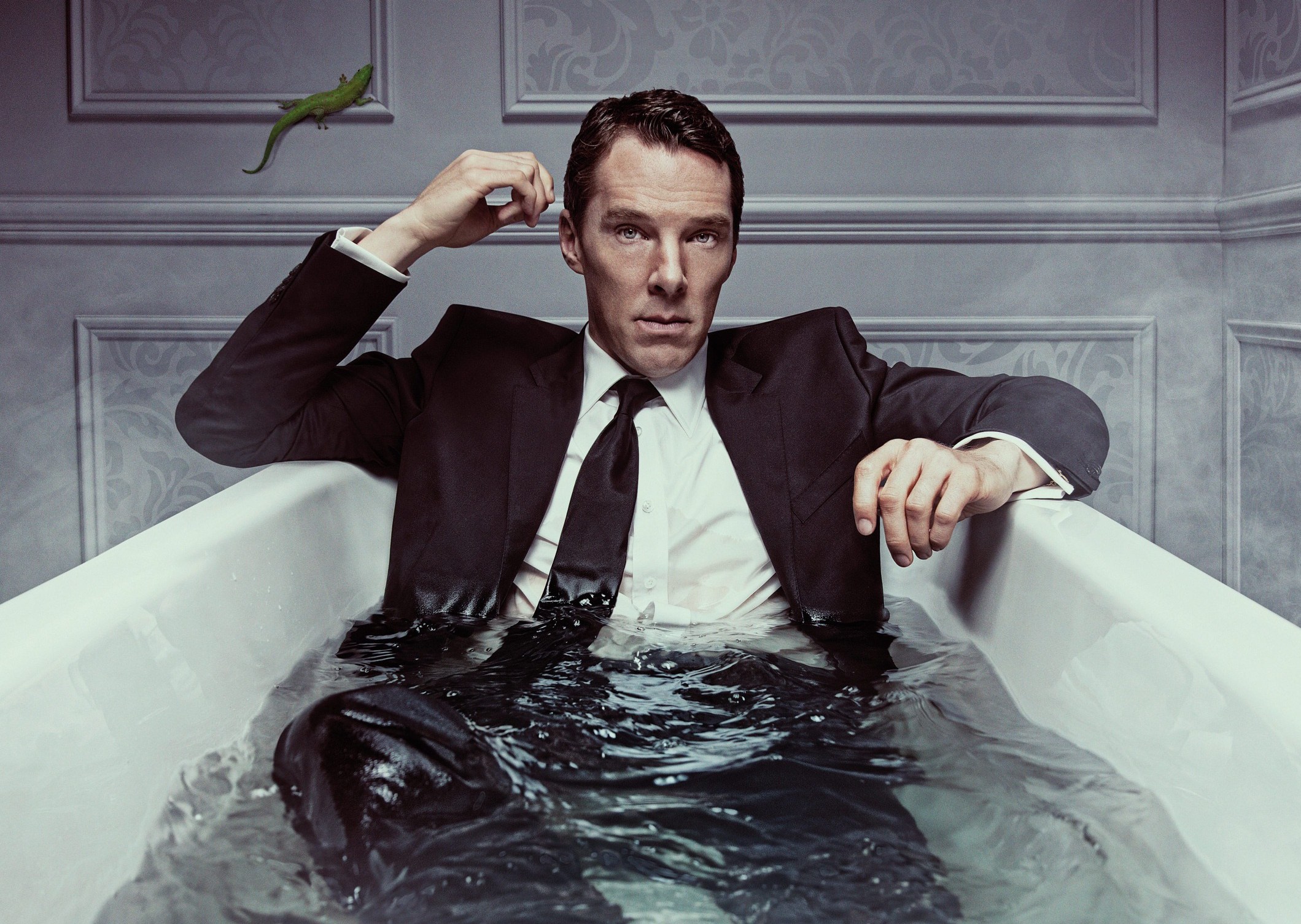
Benedict Cumberbatch in Melrose, the TV adaptation of Edward St Aubyn’s novels
Edward St Aubyn’s semi-autobiographical quintet about destructive parents proved that deep psychological pain can be horrifically funny. The fourth novel catches up with a middle-age Patrick Melrose, who was raped at the age of five by his father, as recalled in his first book, Never Mind (1992). Now a wealthy barrister recovering from heroin addiction, Patrick finds his wife, Mary, consumed by motherhood and his dying mother about to hand over his inheritance to a new age foundation. Meanwhile, he is struggling with his own feelings about child-rearing. “Looking after children can be a subtle way of giving up,” Patrick reflects, having been ousted from the marital bed by his son. “The part of oneself that’s fighting against decay and depression is transferred to guarding them from decay and depression. In the meantime one decays and gets depressed.”
Buy a copy
Brooklyn by Colm Tóibín (2009)
It would be criminal to exclude Colm Tóibín from any list of the greatest modern novels, but picking which one of his impressive backlist should represent the rest was tricky: Nora Webster, The Master and Long Island (one of those rare sequels that manages to live up to the original) are all powerful reads. Ultimately, though, the Irish author’s touching 2009 novel Brooklyn comes out on top. It’s a heartbreaking story, set in the early 1950s, of an Irish girl on the edge of adulthood leaving her home in Co Wexford to forge a new life in Brooklyn, New York. Once settled there, she finds a new American kind of happiness for herself, but must make a terrible choice when tragic news calls her back across the Atlantic. With a plot that rich, no wonder the film adaptation received three Oscar nominations.
Buy a copy
A Girl Is a Half-Formed Thing by Eimear McBride (2013)
We’ll level with you — Eimear McBride’s debut novel is not light reading for the sunlounger. A Girl Is a Half-Formed Thing is formally and linguistically experimental, and frequently disturbing in subject. But it’s so good that you should read it anyway. Narrated by an unnamed young woman, it tells the story of her relationship with her younger brother, who was born with a brain tumour, and with her own body, moulded as it is by the religious and misogynistic world in which she grows up. McBride’s writing is like no one else’s and encapsulates the life of the female body with brio: “Tired. Under-touched. Flesh having run all night after the cows. Flesh carry sacks of turf up lanes from the shed and spurt out child and child and child.”
Buy a copy
• The Sunday Times Bestsellers List — the latest UK book charts
Outline by Rachel Cusk (2014)
About ten years ago Rachel Cusk abandoned the witty, assured social realism that had characterised the first half of her career and instead took her cue from the autofiction of Karl Ove Knausgaard. She used the struggles and existential angst of her middle years to create her own literary form: plotless, semi-autobiographical accounts of one woman’s conversations with friends and strangers. This woman is a divorced middle-aged writer, Faye, who has lost her belief in reality and acts as a quasi-passive receptacle for other people’s stories of catastrophes, epiphanies and transitions. Outline was followed by Transit (2016) and Kudos (2018), forming a trilogy in which Faye eventually reattaches herself to life. Cusk’s autofiction was recognised as a new path for the novel, transforming her into one of Britain’s most celebrated modern writers.
Buy a copy
The Green Road by Anne Enright (2015)
It was The Gathering that won Anne Enright the Booker, but we have a soft spot for The Green Road, her novel about the Madigan family’s not-very-happy Christmas. Each of the children is struggling: Hanna with alcoholism, Dan with his sexuality, Constance with illness and Emmet with heartbreak. We meet each of them one by one, and then together, when their mother, Rosaleen, decides to sell the family home and invites them back for one last festive meal. There are some fantastically lurid scenes of last-minute Christmas shopping at the height of the Celtic tiger boom — “Constance bought a wheel of Camembert, various boxes of chocolates, Parma ham and beautiful, small grapes” — and a moment of real terror when Rosaleen runs away on a stormy night.
Buy a copy
Days Without End by Sebastian Barry (2016)
If you love a novel with sweep, incident and emotion, then this is the novel for you. We see a still young America through the eyes of Thomas McNulty, who arrives aged 17 in the new world after escaping the Irish famine. He falls in with John Cole and at one point the two lads work as a drag act out west in a vaudeville theatre, catering for women-starved men. Thomas never loses his penchant for cross-dressing, even as they sign up, fighting in the American Civil War and then the bloody campaigns against Native American tribes. But it’s not a war story, it’s a love story, as brothers-in-arms become something closer. Lush and full of loveliness.
Buy a copy
Golden Hill by Francis Spufford (2016)
Spufford’s literary page-turner, his debut, was championed by The Sunday Times and became a runaway bestseller. He only started writing novels at the age of 52, by which time he wanted to “throw in everything I liked, and then the kitchen sink”. The result is a madcap caper set in mid-18th-century New York that follows Richard Smith, a fresh-off-the-boat ingenu from London, who arrives with a bill of exchange for £1,000 and experiences Manhattan in its infancy. It reads like all the best bits of Henry Fielding, Samuel Richardson, Tobias Smollett and Laurence Sterne. Spufford is the master of the set piece: the party, the punch-up, the duel, the bathhouse romp. His great skill is to breathe life into almost any scene with apparent ease.
Buy a copy
Conversations with Friends by Sally Rooney (2017)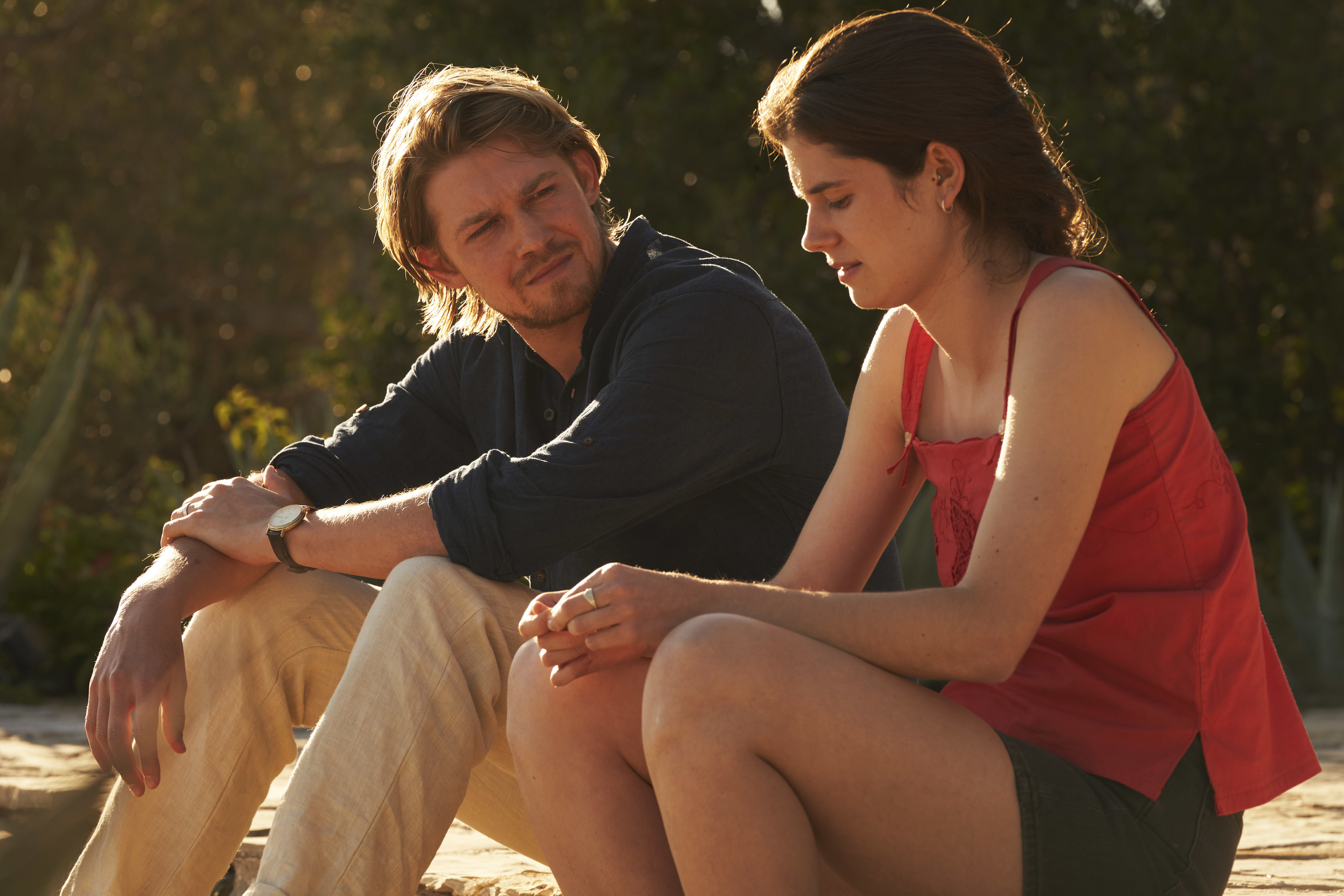
Joe Alwyn and Alison Oliver in the 2022 TV adaptation of Conversations with Friends
ENDA BOWE/BBC
We know that Normal People is Sally Rooney’s most widely loved novel, but we’re standing firm on our position that her debut, Conversations with Friends, is even better. It takes as its subject a quartet of people — Frances and Bobbi, two young women studying at Trinity together, who used to be in a relationship, and Melissa and Nick, a married couple in their thirties. When Frances and Nick begin an affair, all four hurt each other in increasingly baroque ways. Rooney is fantastic at understanding the anxieties and frustrations of youth, and the particular pain of heartbreak: “At times I thought this was the worst misery I had experienced in my life, but it was also a very shallow misery, which at any time could have been relieved completely by a word from him and transformed into idiotic happiness.”
Buy a copy
The Silence of the Girls by Pat Barker (2018)
The first part of Pat Barker’s Trojan War trilogy brilliantly subverted the traditional tale of heroism and glory by focusing on the brutal consequences on the women and girls enslaved in the Greeks’ “rape camp”. We follow Briseis, the watchful 19-year-old queen of Lyrnessus, who is forced to become the warrior Achilles’ “bed girl” mere hours after she has witnessed him butcher every man in her family. The warrior grabs her chin and says, “Cheers lads … she’ll do” (the book is full of this kind of modern, unvarnished Anglo-Saxonism). Published at the height of the MeToo movement, Barker’s electrifying 14th novel became a bestseller, proving that a story about the Bronze Age could hold up a mirror to our world in which women are still treated as “prizes of honour”.
Buy a copy
• The nation’s favourite 20th century novels: 50 modern classics
Now We Shall Be Entirely Free by Andrew Miller (2018)
This cat-and-mouse thriller set at the height of the Napoleonic Wars is one of the most underrated British novels of recent years. It’s 1809 and John Lacroix, a wounded British officer in his early thirties, is guilt-ridden by memories of war atrocities committed in Spain. Instruction comes for John to return to his regiment but, wondering whether he has “lost some common, invisible thread of sense”, he flees to the Hebrides. This is a novel of delicately shifting moods, a pastoral comedy, a passionate romance and a story of murder. There’s even a trippy scene involving laudanum. Andrew Miller, who last month was Booker longlisted for The Land in Winter, which is set in the 1960s, is one of those rare novelists who can rock up in any time and place and convincingly inhabit that particular historical moment.
Buy a copy
Milkman by Anna Burns (2018)
When Milkman won the Booker in 2018, some readers thought it was incomprehensible, with names swapped for titles like “maybe-boyfriend” and “third brother-in-law” and places referred to in intentionally ambiguous ways. But others (and we’re with them) thought it was tense, formally inventive and all the more moving for its ambiguity. Set in Troubles-torn Belfast, where everything is surveilled and nothing escapes judgment, the story is narrated by Middle Sister, an introspective young woman who cannot seem to fit into the mould society has made for her. She reads while walking, for goodness sake! Her life is put in peril when she comes to the attention of Milkman, a “frightening” and “dangerous” individual who “didn’t ever deliver milk”.
Buy a copy
Shuggie Bain by Douglas Stuart (2020)
Hankies out, Shuggie Bain is a heartbreaker. Set in the tough universe of the working-class estates and tenements of Scotland in the 1980s and 1990s, it’s the story of a poor, sensitive boy and his mother, a finely drawn tragic heroine. Her alcoholic disintegration is movingly and painfully chronicled; and there is a beauty and tenderness in Douglas Stuart’s description of her relationship with Shuggie. It’s not all misery, there are flashes of humour, caught in earthy Glaswegian. You root for both characters, hoping that against the odds they find peace and happiness, that they can escape their lives, roughly circumscribed by addiction and poverty. It does what good fiction does — you walk in the scuffed trainers of people who live very different lives. A popular winner of the Booker prize.
Buy a copy
The Bee Sting by Paul Murray (2023)
Paul Murray’s tragicomic masterpiece teases out all psychic horror of family life and turns it into riotous farce. This is a mosaic-like account of one family’s misery when their Volkswagen dealership hits the skids in post-crash Ireland. We plunge into the scrambled thoughts of each of the four protagonists — the hapless pater familias, Dickie, his materialistic wife, Imelda, and their two confused teenage children. It’s a story of blackmail, betrayal and freak accidents but most of all it’s about what having money and losing money does to humans. Murray’s fourth novel shares much in common with the big American family sagas of Jonathan Franzen and AM Homes where disaster is piled upon misfortune. As Imelda observes: “Life just came at you like a gang of lads getting out of a van.”
Buy a copy
• Read more book reviews and interviews — and see what’s top of the Sunday Times Bestsellers List
Our top five5. Never Let Me Go by Kazuo Ishiguro (2005)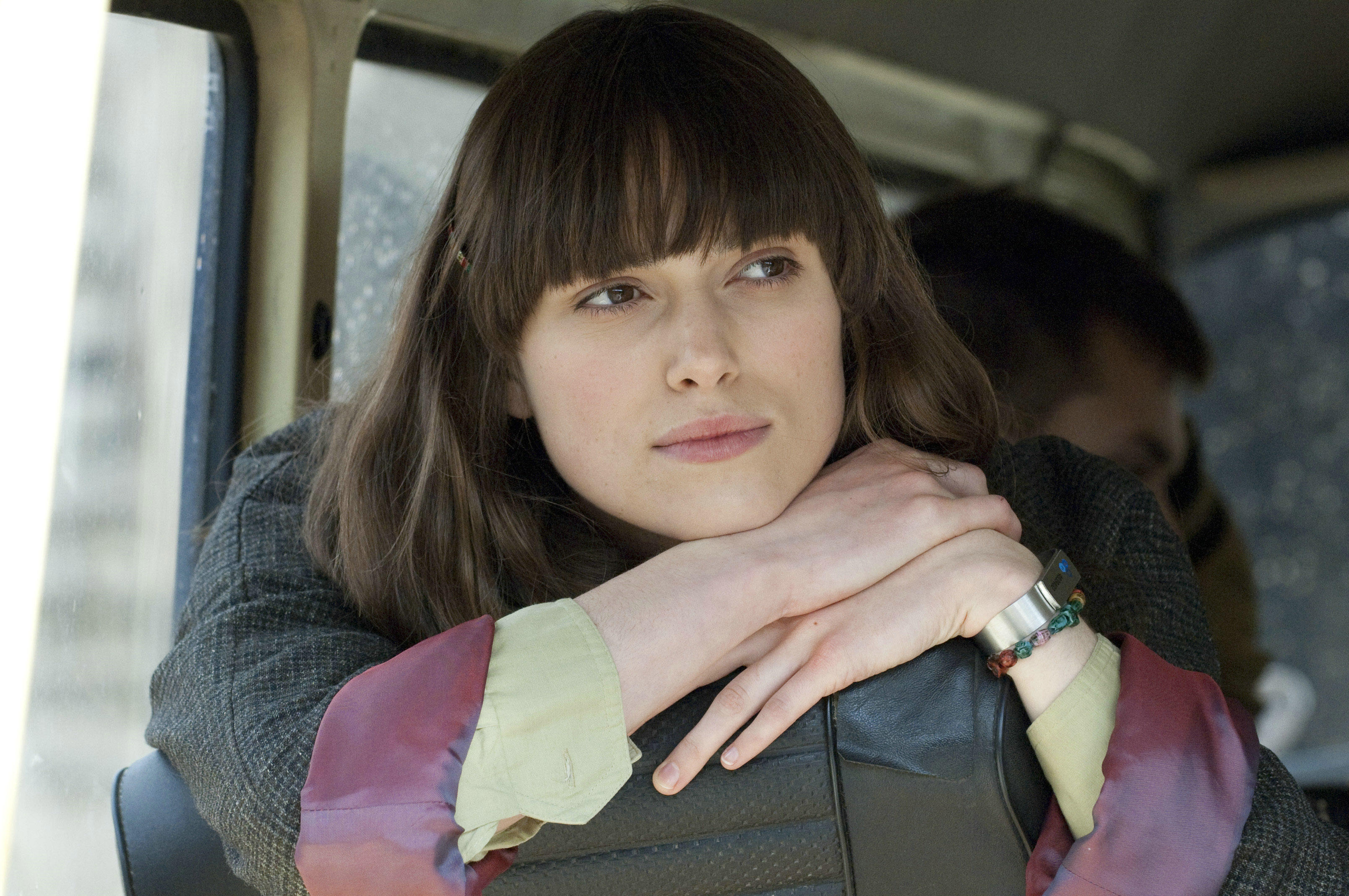
Keira Knightley in the 2010 film adaptation of Never Let Me Go
ALAMY
Kazuo Ishiguro’s melancholy masterpiece was once dismissed as a “failure” by Frank Kermode, who said its “dear-diary prose” would never hold the reader’s interest. Twenty years on, with film and stage adaptations and translations in 50 languages, Ishiguro’s best-read novel (yes, it has outsold The Remains of the Day) is considered a modern-day classic. Its story will haunt you for a lifetime. The narrator, 31-year-old Kathy H, reflects on her life, fondly recollecting her time at Hailsham, a boarding school in the English countryside, where she became close friends with the controlling Ruth and the sensitive Tommy. The characters seem orphaned, but it slowly emerges that the pupils are clones created for sinister purposes. They will never grow old. Ostensibly science fiction, this heartbreaking story is really about the inescapability of sickness and death, and the strategies we employ to give our limited lives meaning.
Buy a copy
4. Atonement by Ian McEwan (2001)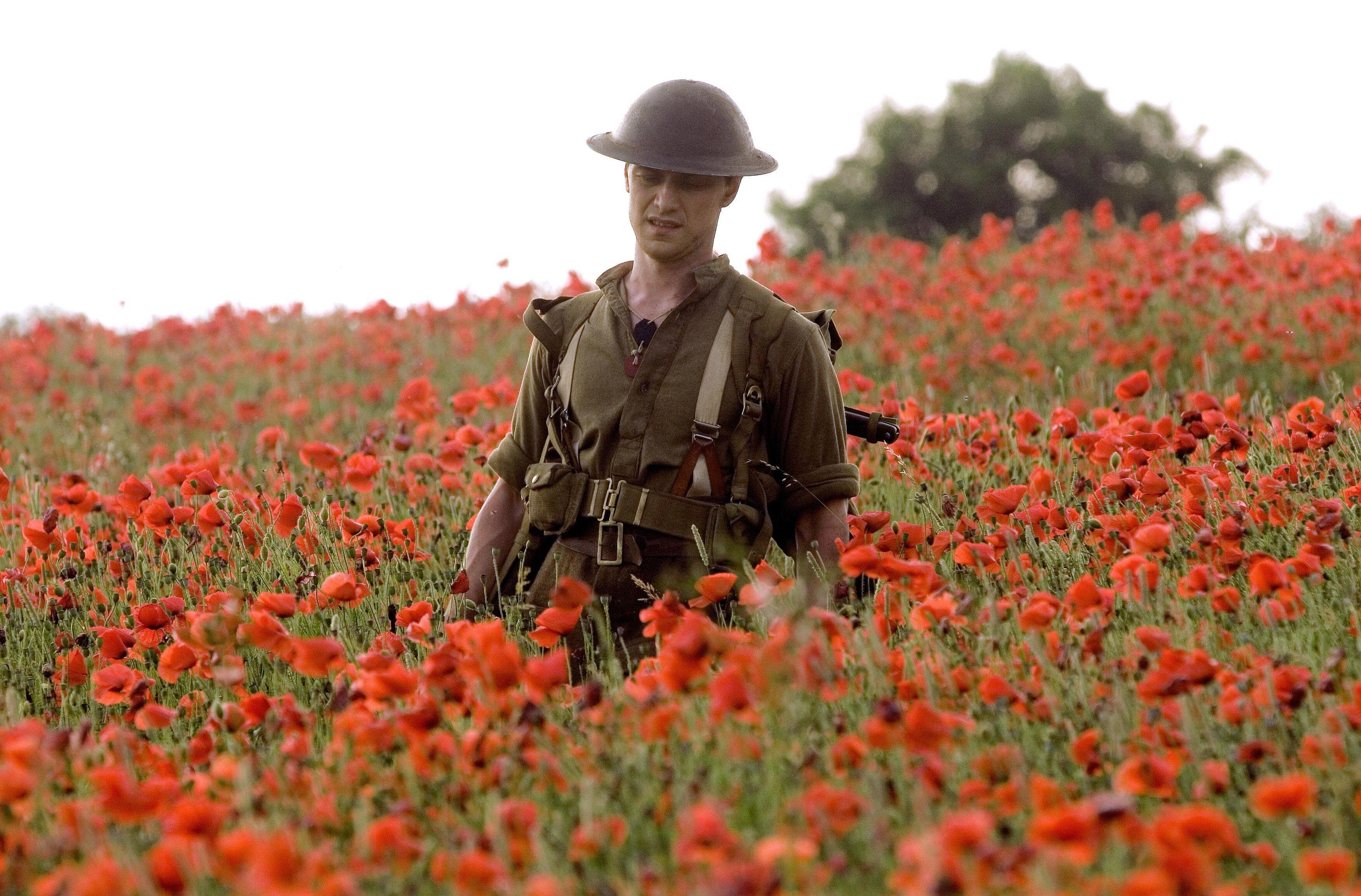
James McAvoy in the 2007 film adaptation of Atonement
ALAMY
Few novels this century have a fraction of the emotional power of Atonement, a tale of doomed love and painful regret. In the summer of 1935, young Briony watches with confusion as a romance blossoms between her sister Cecilia and Robbie, the son of the family’s housekeeper. When a terrible crime is committed, Briony wrongly accuses Robbie. These three characters continue to move uncomfortably in each other’s orbit as the war breaks out, and as Briony realises her mistake she knows that she has destroyed the couple’s chances for ever. The descriptions of Dunkirk are particularly strong: “All around him, men were walking silently with their thoughts, reforming their lives, making resolutions. If I ever get out of this lot … They could never be counted, the dreamed-up children, mentally conceived on the walk into Dunkirk, and later made flesh.”
Buy a copy
3. Small Things Like These by Claire Keegan (2021)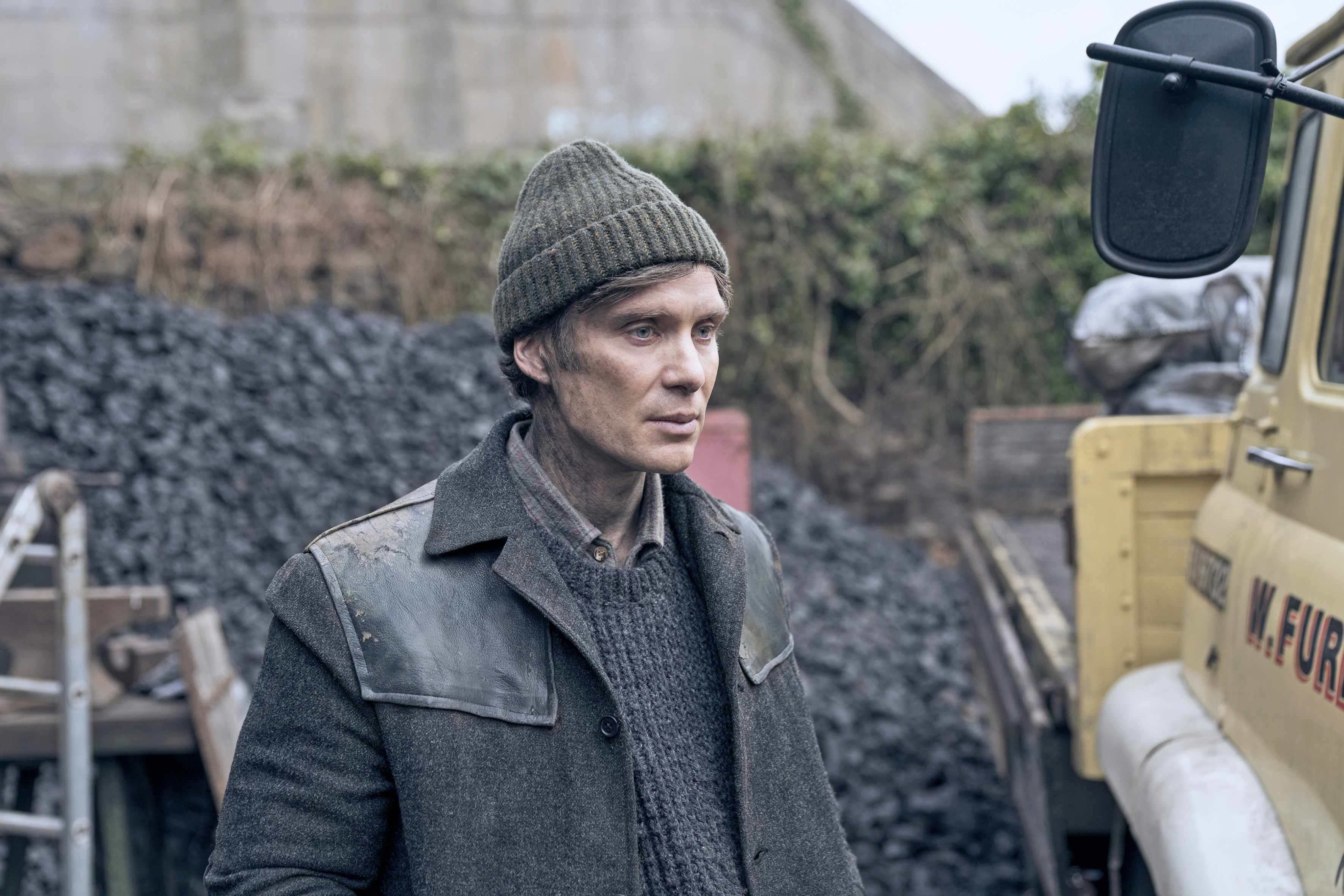
Cillian Murphy as Bill Furlong in Small Things Like These
ENDA BOWE
Sometimes a novel comes along that proves without question that the author is a master of their craft. Small Things Like These, Claire Keegan’s first novel in more than a decade, does exactly that. The tender, carefully constructed tale is set in rural Ireland during the unforgiving winter of 1985, and tails the coal merchant Bill Furlong — a gentle yet hardworking father of five — as he makes his last fuel deliveries in the run-up to Christmas. Things take a dark turn when Furlong stops in at the local convent and finds a starving young woman locked inside the coal shed. Realising the extent of the church’s abuse of unmarried mothers, he must weigh up the cost of staying silent versus the cost of intervening. Hence the book’s dedication “to the women and children who suffered time in Ireland’s mother and baby homes and Magdalene laundries”. Nostalgic, pensive, fierce and deeply affecting all at once, it rightfully deserves a spot in the literary hall of fame.
Buy a copy
2. The Line of Beauty by Alan Hollinghurst (2004)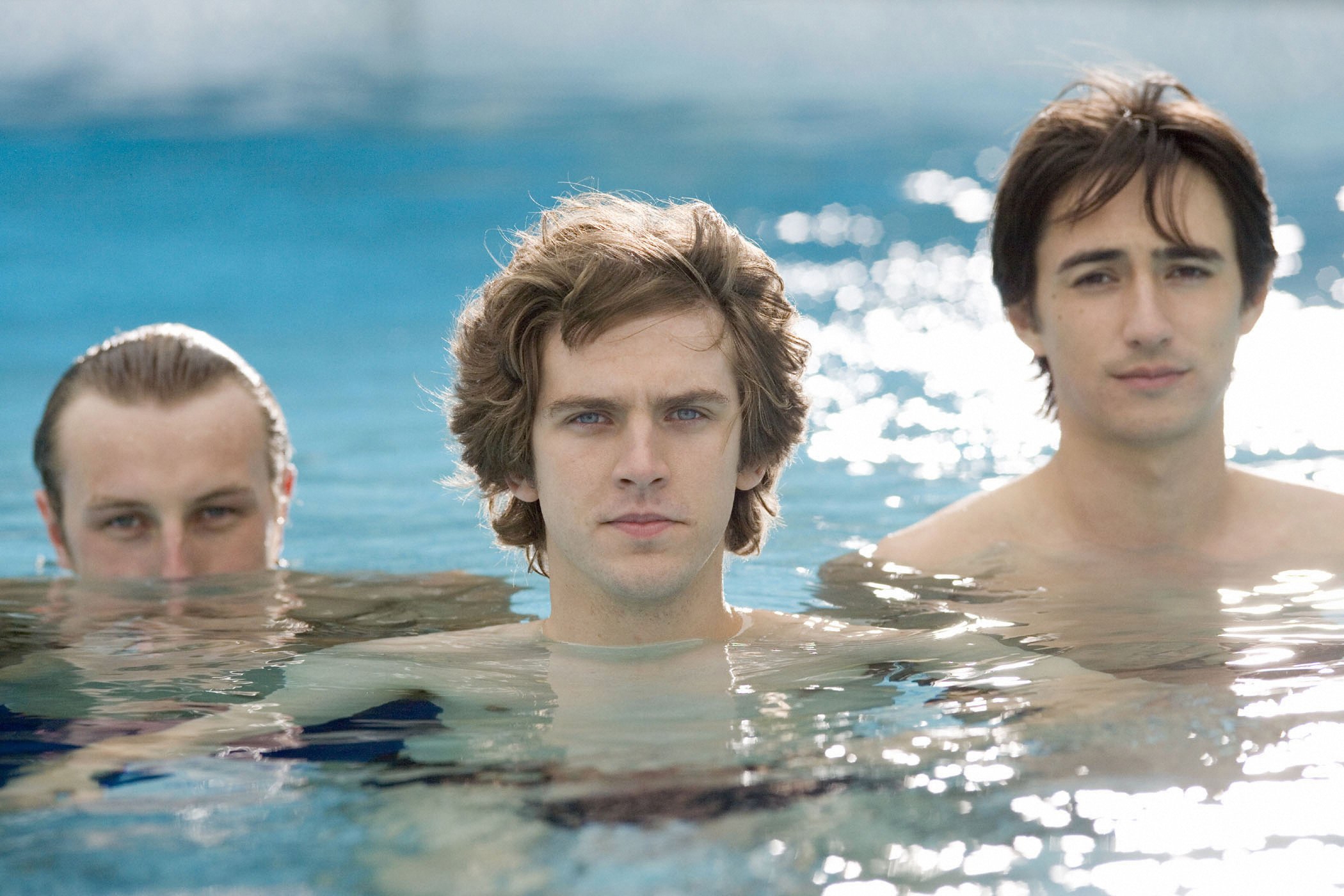
Oliver Coleman, Dan Stevens and Alex Wyndham in the 2006 TV adaptation of The Line of Beauty
BBC
This is one of the most brilliant novels ever written about the British class system. It has comedy, tragedy, political scandal and drug-fuelled hedonism. It even has a dancing Mrs Thatcher. Every sentence is a work of beauty. Thatcher’s Britain and the Aids crisis is seen through the eyes of Nick Guest, a young, gay aesthete who is invited to stay with the wealthy Fedden family in their Notting Hill home. Over the 1980s, the family induct him into a world of French villas, troubled millionaires and vicious power games. Alan Hollinghurst can write about outdoor “bumshoving” with a rare elegance and candour. But if you’ve come for the heady gay sex, you stay for the forensic dissection of the British establishment. This is a novel with a powerful political charge.
Buy a copy
1. Bring Up the Bodies by Hilary Mantel (2012)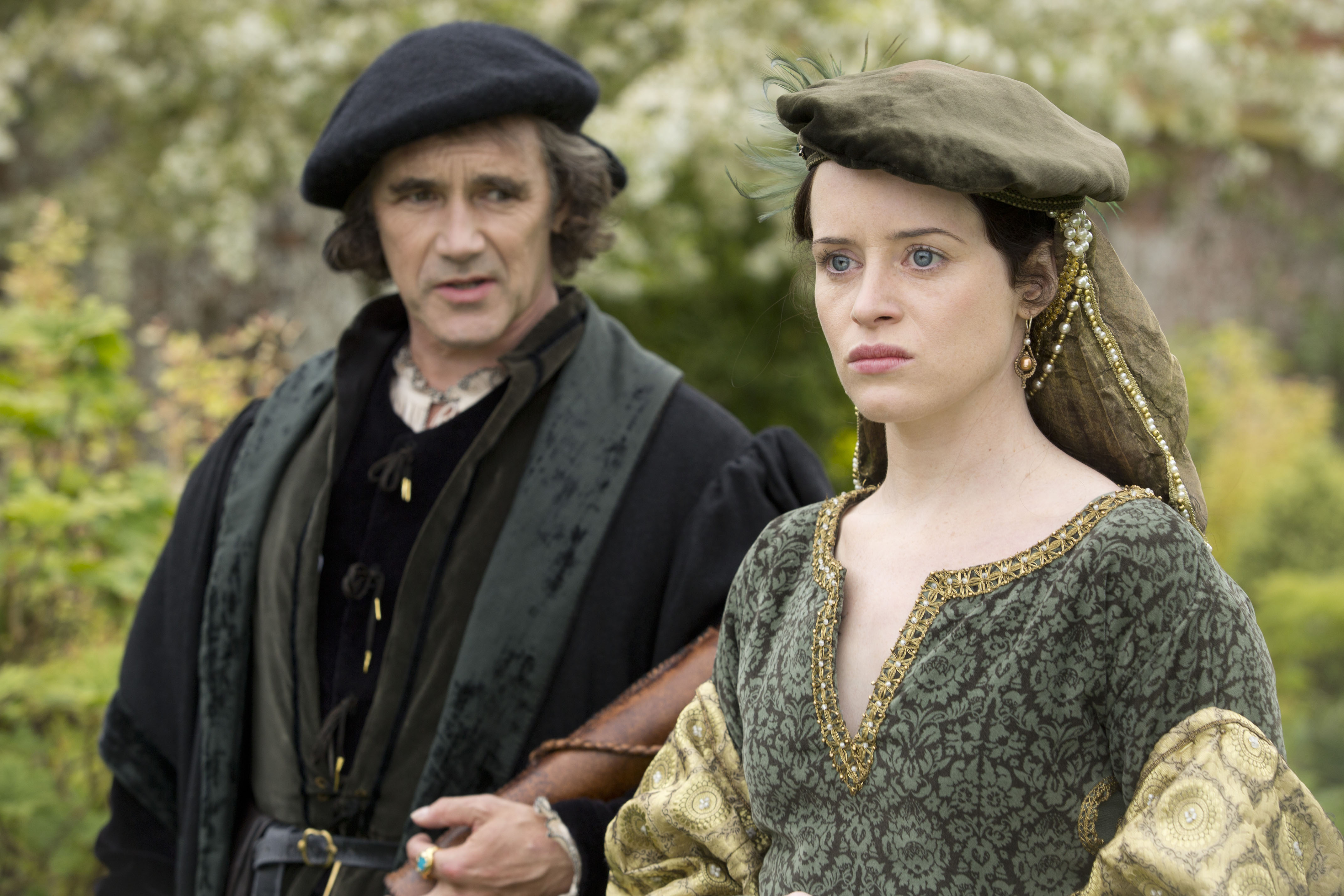
Mark Rylance and Claire Foy in the BBC adaptation of Hilary Mantel’s Wolf Hall
GILES KEYTE/BBC
Initially we had Hilary Mantel’s Wolf Hall in the top spot, and the first in her Thomas Cromwell trilogy is definitely in “genius” territory, but we think Bring Up the Bodies is even better. As it begins, Anne Boleyn has married Henry VIII and given birth to a child, Elizabeth. But when she fails to provide a male heir, Henry grows impatient. As the wily Cromwell begins to plot against the queen, Mantel’s generous, expansive narrative grows sharp. She has done that almost impossible thing — to take a story that every child learns at school, and still make the reader thrum with suspense. Every word of the eventual execution scene is finely tuned (“into that silence, a sharp sigh or a sound like a whistle through a keyhole”) but most powerful of all is the conclusion, as Cromwell comes to terms with his own mortality, and the likelihood that Henry will one day turn on him. “There are no endings. If you think so you are deceived as to their nature. They are all beginnings. Here is one.”
Buy a copy
What is your favourite British or Irish novel of the 21st century? Join in the conversation in the comments below.
